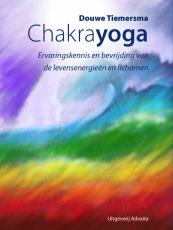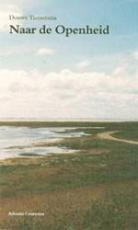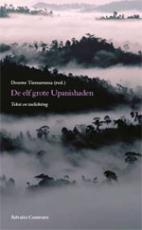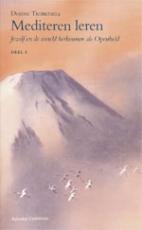Advaita Post #12-19 - You are the subject of perception and action...
Volume 12 No 19 (November 25, 2011)
--- You are the subject of perception and action, not an object; as first person you are not third person, not some thing ---
Do you recognize Maya, in all her guises?
* * * * *
Douwe's health
The results of the most recent medical examination were not positive. Cancer was detected once again in cultures and scans in the area of the transition from the esophagus to the stomach. The only real option now is surgery. This will probably occur in the second half of December. Because no metastases were found, and Douwe's condition is good, the chances of a permanent recovery are quite good. It's like an inner tube: cutting out the weak spot and stitching the ends back together. "Weak spot?", people ask. Oh, it can be linked to heredity, to the difficult living conditions of the "Hunger Winter" at the beginning of Douwe's life (the Dutch famine of 1944-45), to sensitivity - which is not a problem, but apparently the body can't take on all the sufferings of people (the duality). Conditions are so relative. The body belongs to the realm of temporary phenomena.
For now things will continue as usual. Because surgeries are only planned two weeks in advance, it's not yet clear which meetings in December will be cancelled. So keep an eye on the website.
As for the new year, the situation is unclear. The February-week in Schiermonnikoog, the courses on Monday evening (yoga and meditation), the Chakra yoga training and the weekend in the Hoorneboeg will certainly be canceled.
* * * * *
Being experience of non-duality
The original non-duality can only be indicated in words using negative terms or as a groundless openness. It can't be objectified. Nevertheless, the teaching continues. Up to the level of universal non-duality a indication in words is still possible, because there is an infinite being-consciousness-bliss: a being-experience, an internally experienced way of being. References to that can still be helpful as long as people go along with it "until the non-dual reality becomes the most natural and stable reality" - see the previous Advaita Post. Only then does a true realization of the Absolute break through.
Therefore, a few references are included here below, new ones are welcome and can be sent to the secretary (secretariaat@advaitacentrum.nl). Several other additional texts can be read on the website under Texts Participants (not translated). They vary and not all are of equal depth, but given the diversity of the readership that can still be an advantage.
From: A surgery
... The transport, the I.V., the waiting, the operating room, the anesthesia, the reawakening. The return trip, the reception, the care, the recovery of the life functions. Pain, limiting movement as much as possible. Prolonged and forced lying in the same position.
But what rest, what surrender, what being. Pulse, 46 beats per minute. Everything at rest and in peace. Endlessly empty and undeniably myself.
From: Relationship arbitration
... All different mediators, lawyers and therapists had tried to help them, but to no avail. To my surprise, in the conversation this morning suddenly an opening became visible. I let them see that; they both could go along with it. It worked, the openness and sincerity of both parents was touching.
Of course the problems are not solved, but what happened there was a small miracle in the openness. And so there can only be gratitude for That.
* * * * *
Living like God?
The majority of what is offered as spirituality promises an improvement of life. The problems people have are solved, life is perfect, there's the feeling of the "good life". Of course there's a positive element to this, namely to the extent that an expansion occurs. But true spirituality has nothing to do with that. Why not? Because that's about the "spirituality" of an 'I'-person who wants a perfect life. Connected only to the institution of the person, while the enjoying 'I'-person remains central. Acceptance of everything that is less beautiful, of suffering, and total surrender are not involved. That is also the situation with spirituality which is announced as advaita.
That's the case, for example, with the book Living like God - couldn't be easier (Publisher Samsara) by Zoë Joncheere. I've received several emails about it and that's why I'm mentioning this book. The purpose of the book is announced on the back cover: "Pure and doing only what you want to do. Living in the house that you want .... Being financially independent... Witnessing miracles and experiencing the love of your life. All this is Living like God ... One day you're done with your trip and you lie floating around in your swimming pool ... Couldn't be easier." The book purports to be about "non-dual consciousness" and various 'advaita-sentences' are offered. In the responses about the book on the website it is praised as advaita. How is that possible? Yes, it seems to be possible, because it is so tempting. Most people begin with a spiritual path because they want to get rid of their suffering. There's nothing wrong with that, as long as the development leads to a total openness that is free from the attachment to desires and resistances, to a self-being that no longer has a center. The further you go on a spiritual level the subtler the temptations are and so the more precise and accurate your internal knowledge needs to be. "Living like God - couldn't be easier" may sound beautiful, but see through it: see the blasphemy and the limitation within that knowledge. When you don't see through the temptation, you are temporarily stuck. Your choice...
* * * * *
Text Satsang
From a talk with Douwe Tiemersma in Gouda, October 26, 2011
Subject is not an object
When you become aware of yourself you always return to a structure in which you are focused on something else. In your passive perceptions as well in your more active explorations, in all your activities you have an 'I'-center from out of which you are focused on something else. That's why you say: I see this and I do that. But what is that 'I'? Everyone sitting here knows that I'm referring to your self in its great depth, ultimately to your deepest self-being. And you know where you can find it. It's on the 'I'-side from out of which you do things. You can follow the line of attention in the reverse direction to the source of all your perceiving and acting. Do that. You can be aware of yourself in your depths as first person, as subject and origin of all your activities.
Take a look and see what happens when you withdraw into this dimension. Probably you will quickly notice that you have stopped at a point where you continue to hold on to certain structures, certain feelings in the sphere of yourself. You can do that in the beginning, but then you'll need to become aware of your situation anew. You see: there too you are focused, for example, on certain feelings, certain images, from your own self center. Then you will need to continue to persevere in your backtracking. You will need return so far into your depths that you become aware of yourself as pure first person. That 'purity' means that there is nothing stuck to objects any longer, that there is no intertwinement with some thing in the third person: this and that. It's about the first person. Thus, the first person is not a third person, just as you as subject are not an object. You are not a thing. Can you still say something about it? Maybe something like: it is the openness as the origin of everything.
Is that clear? When it is a little clear, then you also notice when there is an involvement of your self-being with things; how easily you dive back into some thing that originally doesn't belong to you as pure subject. Why does that not belong there? Because it can be objectified. What about yourself? You are not an object. By definition you are subject, first person, the basis of every perception, of every knowledge, of every action, pure, not bound by it. By nature you have nothing objective. That's also why nothing can be said about the core of a person, it's not possible.
How often during the day do you use the word 'I? "I'm going to do this." "Now I must do that." What do you mean by that word 'I'? Probably at first glance, you are simply referring to the physical person with its name, and with all that corresponds to that person. But if you take a look a little deeper and you start to ask yourself: what is that 'I' anyway? Then you can become aware of the origin that you are as openness. From this openness something arises. Just as soon as you say anything about that 'I' self, even in consciousness, then you have already taken on a condition. When others tie you down to that condition, you always have the sense that you're more than that. That's right.
But when asked: how are you, then an answer is still expected about your situation at that moment. How can you say anything about yourself?
Isn't it about that? That you slowly begin to realize: there is nothing to say. For the rest you just accept convention.
When I look, my eyes are certainly involved.
Yes, but now it's about being aware of the origin of that seeing as self-being.
How can you know that? It's infinitely deep.
Yes, therefore your awareness must be infinitely deep.
And if you ask: how are you?
Then it is a koan. Initially it is an increase in the awareness of your current situation. When you are stuck in your body or energies, you give that as an answer. Apparently it is like that. Secondly, you can become aware of yourself in the strict sense: free from conditions.
Sometimes I hear people say: I feel myself as wonderfully spacious.
Then that is a situation in which there is still a thorough involvement with energies. When that's the case, just confirm it. You shouldn't deny it, but name it: I feel trapped in my body, or: I feel very spacious like the energy in the room. So it depends.
So when all these qualities disappear one by one ...
That's what this is about, by continually posing the question again and again: you say you are constructed like this or that, but what's really going on when you say: I perceive something. What is that 'I' of the individual perceiving? Is it that spacious energetic whole with that spacious body? No, go take a look.
It's a sort of knowing.
But take a look at what kind of knowing it is. Because that will need to become conscious.
By knowing I mean: it is consciousness itself.
Go back, go take a look at what it means when you realize that.
So it's about an internal awareness of yourself, without form, without qualities. In every sentence that you speak using the word 'I', still that 'I' is always linked to something else. "I perceive that"', "I see that", '"I hear that". It's good to take that as a starting point for your inquiry into your self. Where do you come from? Almost immediately you are aware of yourself from phenomena. As consciousness I am the subject of perceiving. These phenomena are the object. Great. But then: confirm that this situation is still dualistic. This duality will disappear into the pure subject, because it has no boundaries, is completely open and coincides with everything that exists.
That's why it's so difficult to get to know the true essence of yourself, because the structure of duality is present overall in language. You need only to say something and you see the duality. The meaning of every word comes into existence through the definition of words in relation to other words, thus through their differences. Initially these words are isolated from one another and then they are used together in a sentence. The concepts connected to them influence thought in a dualistic way: by always separating the one from the other. You'll have to see this duality very consciously. Through the process of being active in your perceiving, in your actions, in which 'I' am focused on other things, you'll see this same structure again and again. Recognize it. When you don't recognize it, the structure continues to function. As soon as you name a phenomenon, or someone, or something, then it's clear: that named phenomenon is now separated from the rest. When your name is called and you react as the person with this name, you have separated yourself from others and limited yourself. Of course, it's about what's going on with yourself, to what extent is there a restrictive identification and to what extent is that not the case. Language with its words is secondary. Words can certainly continue and then they have a certain function. But as they proceed, they needn't possess a separating function.
Actually, the words don't need to possess any charge.
So then they simply possess a very pragmatic charge. Nothing more. As long as life continues, it's easier that there are conventions. Just remain aware, infinitely spacious and including everything, so that you don't get caught by it.
Er is geen tweeheid
als je ontspannen bent
in zelf-bewustzijn
is dat duidelijk.
Boeken
Douwe schreef en redigeerde gedurende zijn leven boeken. Via onze uitgeverij zijn deze nog verkrijgbaar.



